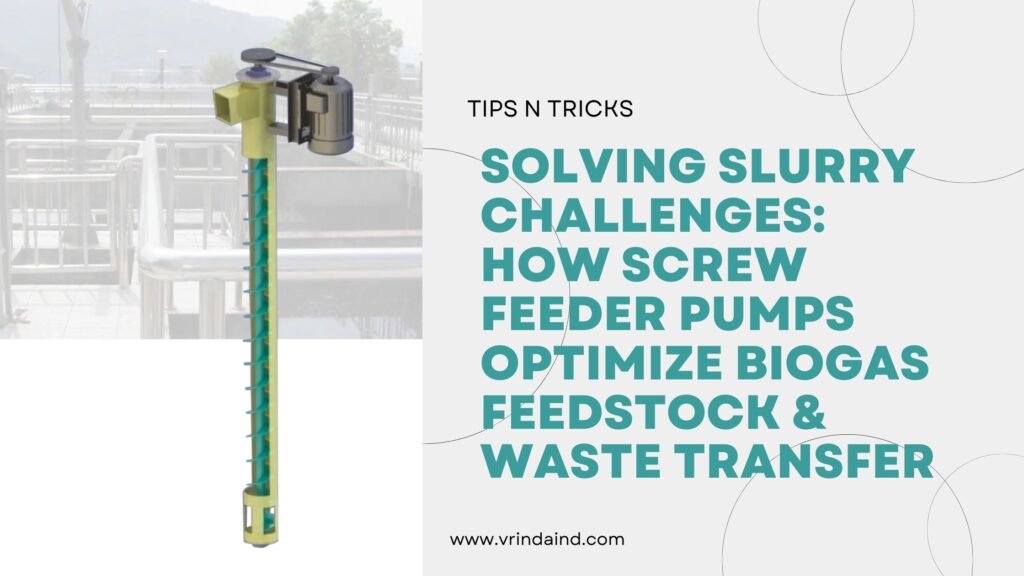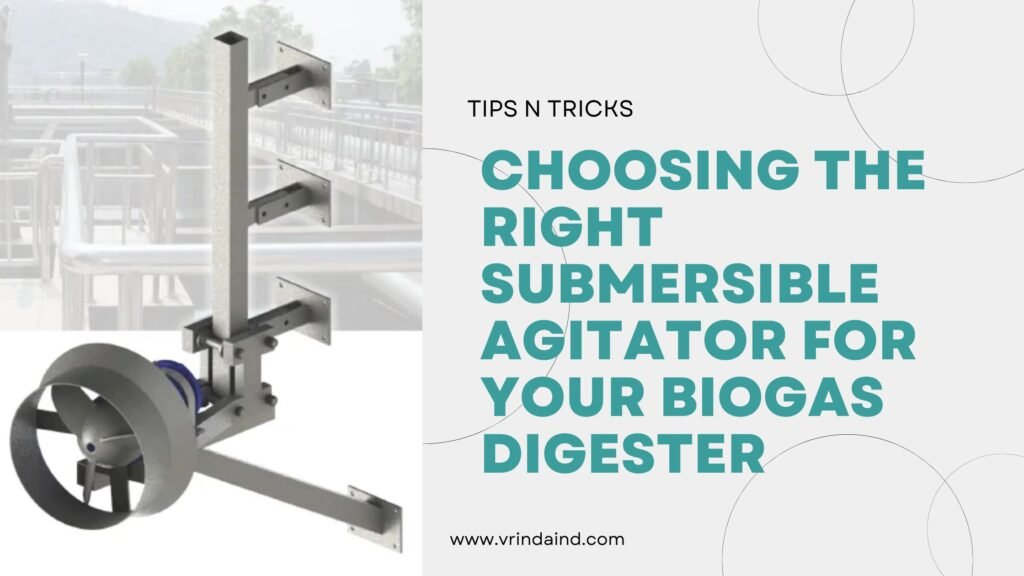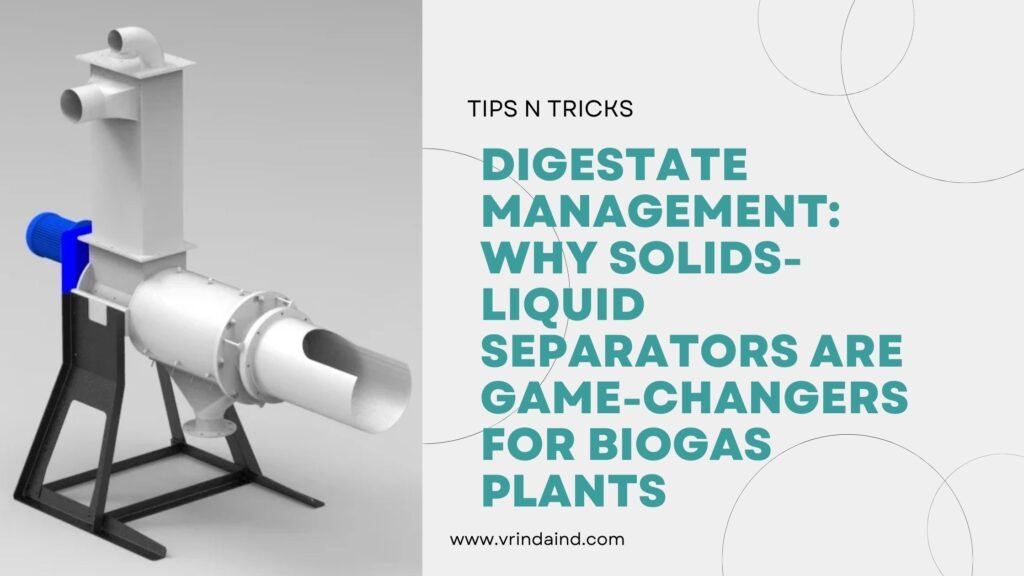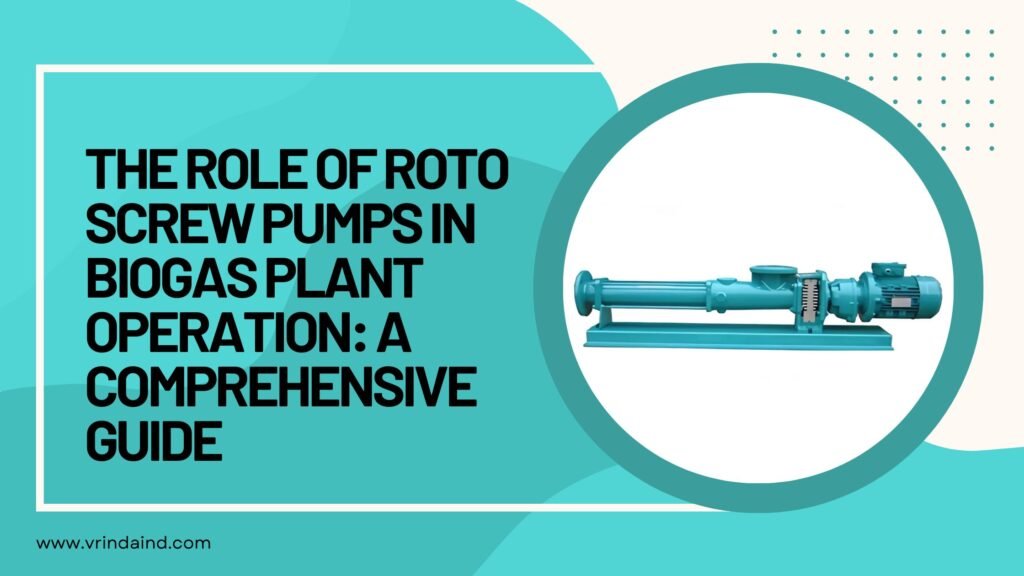In the world of biogas plants and organic waste management, handling highly viscous liquids, thick slurries, and materials with high solid content presents a unique set of challenges. Traditional pumps often struggle, leading to frequent clogging, breakdowns, and inefficient transfer. This is where the specialized Screw Feeder Pump emerges as an indispensable solution.
At Vrinda Industries, as a dedicated biogas plant equipment manufacturer and exporter, we understand the complexities of moving challenging feedstock. Our high-performance Screw Feeder Pumps are engineered to ensure smooth, consistent, and reliable transfer, optimizing the entire process from waste intake to digestate management.
What is a Screw Feeder Pump?
A Screw Feeder Pump, often referred to as a Progressive Cavity (PC) Pump or just a screw pump, is a type of positive displacement pump. Its ingenious design centers around a helical (screw-shaped) rotor that rotates eccentrically within a fixed, similarly shaped stator. As the rotor turns, it creates a series of sealed, continuously forming and reforming cavities. These cavities gently trap the pumped material and move it smoothly from the suction inlet to the discharge outlet.
This unique mechanism allows Screw Feeder Pumps to handle a wide range of materials, especially those that are viscous, abrasive, or contain solid particles, with minimal pulsation and shear.
Why Are Screw Feeder Pumps Essential for Biogas Plants & Waste Management?
The capabilities of Screw Feeder Pumps make them critical for the demanding operations found in biogas plants and waste management facilities:
Handles High Solids & Viscosity: Unlike many other pump types, screw feeder pumps are specifically designed to efficiently transfer materials like thick animal manure, food waste slurries, industrial sludges, and digestate with high dry matter content.
Prevents Clogging: The continuous, positive displacement action, combined with robust design, allows these pumps to pass solid particles (including foreign objects like small rocks or fibers) without clogging, ensuring uninterrupted operation.
Precise Dosing & Consistent Feeding: The flow rate of a screw feeder pump is directly proportional to its rotational speed, providing highly accurate and non-pulsating flow. This is crucial for precise feeding of feedstock into biogas digesters, optimizing the digestion process.
Gentle Material Handling: The smooth, low-shear pumping action is ideal for transferring shear-sensitive materials (which is beneficial for certain biological processes) and minimizes degradation of the pumped medium.
Reliability & Durability in Harsh Environments: Constructed with robust materials and designed for demanding conditions, these pumps offer exceptional operational life, even when dealing with abrasive or corrosive slurries common in waste treatment.
High Suction Lift: Many screw feeder pump designs offer excellent self-priming capabilities and high suction lift, making them versatile for various installation setups.
Key Considerations When Choosing a Screw Feeder Pump
To select the ideal Screw Feeder Pump for your application, consider these vital factors:
Material Characteristics: The most important factor. Analyze the viscosity, solids content (size and type), abrasiveness, corrosiveness, and temperature of the material to be pumped. This will determine the optimal rotor and stator materials (e.g., specific elastomers, stainless steel alloys).
Flow Rate & Discharge Pressure: Define the required volume of material to be transferred per hour and the necessary pressure to move it through your piping system.
Application Specifics: Are you feeding a digester, transferring sludge, or dosing chemicals? Each application might have unique requirements for precision or robustness.
Energy Efficiency: Look for models designed for optimized power consumption, as this directly impacts your long-term operating costs.
Ease of Maintenance: Consider pumps with designs that allow for relatively simple and quick maintenance access to wear parts, minimizing downtime.
Manufacturer Expertise: Partner with an experienced biogas equipment manufacturer like Vrinda Industries. Their knowledge in designing and selecting the right pump for your specific waste stream is invaluable.
Key Considerations When Choosing a Screw Feeder Pump
At Vrinda Industries, we specialize in manufacturing and exporting high-quality Screw Feeder Pumps specifically engineered to tackle the toughest challenges in biogas plants and organic waste management. Our pumps are renowned for their robust construction, exceptional reliability, and ability to handle even the most problematic slurries and viscous liquids.
We are committed to providing precise, durable, and efficient pumping solutions that optimize your processes, reduce maintenance, and enhance your overall operational success.
Optimize Your Waste Transfer with the Right Screw Feeder Pump
The efficiency of your biogas plant or waste management system heavily relies on the reliable transfer of challenging materials. By choosing the right Screw Feeder Pump, you can ensure smooth operations, reduce blockages, and achieve consistent feedstock delivery, ultimately boosting your system’s performance.

Contact Vrinda Industries today to discuss your specific requirements and get a personalized quote for our high-performance Screw Feeder Pumps!




